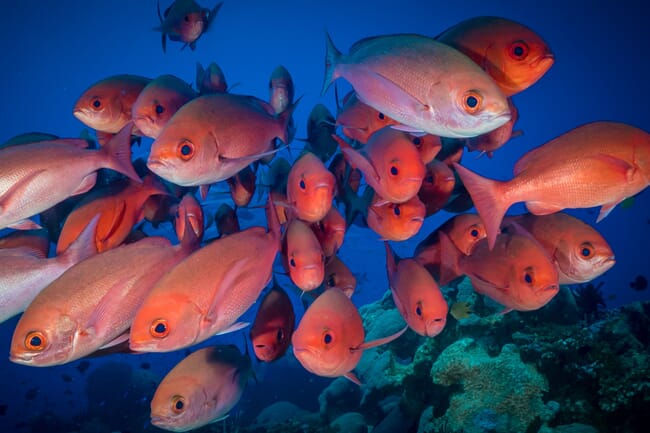
A new project to breed “super” snapper has received an exemption from the Fisheries Act, allowing researchers to move onto the next stage of research in developing an improved broodstock of the fish.
The project, led by the institute Plant and Food Research, aims to selectively breed wild caught snapper to cultivate traits for disease resistance, accelerated growth, and an improved tolerance for warm water, with the goal of driving the growth of the New Zealand aquaculture industry.
“The potential here goes far beyond growing a better and more resilient breed of fish, it also supports our efforts to grow and future-proof New Zealand’s aquaculture,” said Oceans and Fisheries Minister Shane Jones, in a press release announcing the research milestone.
“Climate change is affecting the condition of our oceans and this project is a practical response by a key industry to that change. In the wild, snapper can take many years to grow to catch size. The ability to grow them faster, getting them from farm to plate in a shorter time, could open up a new export market and reduce pressure on wild snapper stock,” he added.
Under the New Zealand Fisheries Act, fish caught for research purposes cannot be used in aquaculture. However, the exemption granted to Plant and Food Research will allow the researchers to move its snapper broodstock to a pilot-scale aquaculture farm being developed in Marlborough.
“Research that is focused on expanding and improving farmed fish species is very welcome and should be encouraged and supported. Growing aquaculture is a win for all New Zealanders. It provides jobs and economic growth for the regions and increases export potential for the country,” he concluded.




